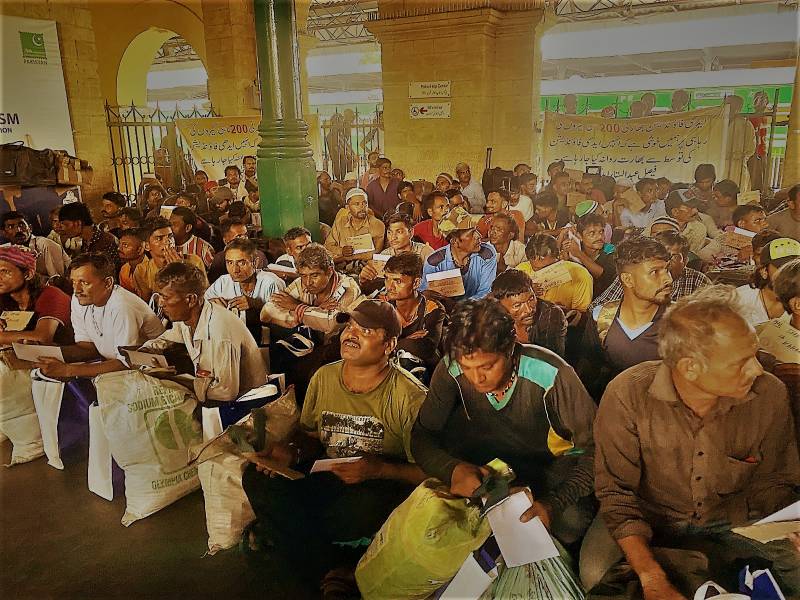
Jagdish Mangal, one of the many Indian fishermen arrested by Maritime Pakistan's Security Agency in February 2020, died on August 6 of 'natural causes'. Would he still be alive if he, along with 99 Indian fishermen, were repatriated on July 3?
Mangal was 35-years-old, from the Nana Vada area of Gujarat. He was among the several Indian fishermen arrested in Pakistan and detained in the Malir prison, Karachi. Pakistan was expected to repatriate 99 Indian fishermen on July 3 but failed to do so for unexplained reasons.
Another fisherman, Soma Baraiya, 58, was to be released along with 198 other Indian fishermen in May. He was imprisoned in 2020. He passed away days before his repatriation.
Soma Baraiya's mortal remains were repatriated in two weeks. But because his nationality had already been verified in readiness for the upcoming repatriation, the process was far quicker than the usual 2-3 months.
The authorities take months to confirm the nationality of incarcerated fisherfolk. Even in the case of demise, the Ministry of Foreign Affairs usually takes up to two weeks after a death in custody to send an official communication across the border.
India and Pakistan signed a Consular Access Agreement in May 2008, which would provide consular access to each other's prisoners within three months of the arrest. This has not happened.
The Committee, comprising four members from each country, recommended that such prisoners must be provided consular access "every year, at least four times, namely in the first week of February, the first week of May, the first week of August, and the first week of November". The Committee met twice a year for most years until its last meeting in India in October 2013.
The Judicial Committee needs to be urgently reconstituted.
In the absence of communication, more so post-COVID-19 pandemic, the arrested fishermen's family members have no information about how their loved ones are faring. Prisoners have a right to meet relatives and friends, but this is not possible between India and Pakistan.
Pakistan's interim Prime Minister Anwar-ul-Haq Kakar would do well to take the urgent step of repatriating 100 Indian fishermen promised by the previous government.
Testimony from the fishing community and boat owners suggests that Pakistan has over 1,200 Indian fishing boats in custody. Each boat costs roughly $72,000. Meanwhile, India holds over 200 Pakistani boats. The only time any boats were returned was in March 2015, when Pakistan sent back 57 Indian fishing boats.
When fisherfolk are arrested and fishing boats confiscated, the coastal economy suffers – because boats are the only source of income for most people in the fishing community.
Activists have long been calling for a No-Arrest policy and for fishing boats that cross the maritime border to be pushed back into their own country's waters. This would stop the harassment of fishermen and their families and reduce pressure on the treasury.
This is an abridged version of the article that originally appeared here.

